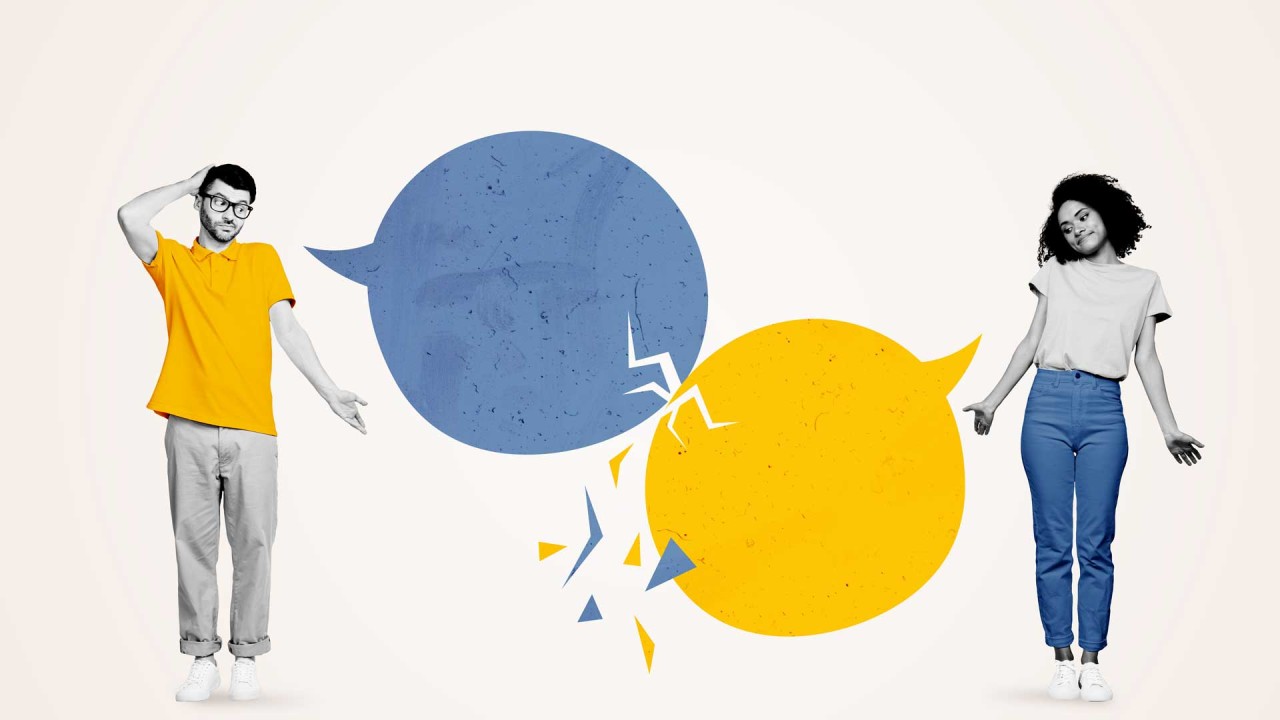.
I’m worried about saying the wrong thing
Worried about saying the wrong thing for fear of upsetting or offending someone? Our Doug feels the same, so he’s sharing his inner most worries - and a suggestion – and hopes you’ll forgive him if he says the wrong thing.
Keeping up with an ever-changing world
Like most of you I don’t want to upset or offend anyone. What I do want, though, is to find a way to end my crippling awkwardness that seeps out of me when I feel like my sentence has started badly!
I like to think my heart’s in the right place (my sister might disagree, but I shaved her Barbie when we were kids), and I like to think I’m pretty progressive. Still, the fear of saying something the wrong way has put the heebie-jeebies into me, making me terrified I’ll wake up one day with thousands of notifications telling me how terrible a person I am.
The world is changing at an incredible rate, and it can often feel hard to keep up. I’m very aware I don’t know much about religion, I need to learn more about gender identity and educate myself on the values and beliefs of diverse communities. These worlds are not worlds I grew up in, and often I fear of saying something incorrectly, which leads me to say nothing at all.
I’m conscious that there are similarities between that stereotypical old granny or grandpa using hurtful language because it was “normal” when they were young, and me saying I don’t understand what I can and can’t say anymore.
Having said that, my awareness of where I am and my eagerness to change my language, adapt my behaviours and accept change is much greater than Gladys next door.
Unconscious bias
One thought game our Laughologists pose during an unconscious bias session is: "Picture your inner circle of friends; what do they look like? What level of education do they have? What life experiences do they have? What’s their identity?”
I hadn’t thought about those questions too frequently before starting work with Laughology. It’s very eye-opening to realise that apart from one friend from Uzbekistan, all the answers are “they’re the same as me”. This means if I ever needed to go to them for another point of view, I’m likely to get similar answers to my own.
There’s a complete lack of diversity of person and, therefore, a complete lack of diversity of thought.
Diversity of thought is the idea that diversity is found through life experience, skills and ways of thinking. We know this can benefit the workplace as new perspectives bring fresh ideas, and innovation comes more naturally.
Yet, diversity of thought doesn’t only need to be achieved by diversity of demographics. Unfortunately, many organisations and industries believe this is the simplest method, which is why we see lots of targets for representation.
But I can’t do that with my friendship group, can I? Would you be friends with someone that wanted you as a friend because you filled a quota?
Me neither.
Moving forward with kindness
Now I don’t have all the answers (or I’d be a wealthy man riding a jet ski, not writing a blog), and I doubt I ever will, and I will make mistakes. So, all I ask is that you bear with me whilst I’m on my journey. As Russell Howard summed it up – “I’m going to get things wrong, but I’m trying, so correct me, don’t yell at me”.
So, moving forward, I’m going to ask kind curious questions.
Not to undermine or offend anyone but to expand my viewpoint. If I get it wrong, tell me and all I ask in return is for you to respond kindly and understand my awkwardness.
This whole article has been my brain’s winding way of finally getting to the point of asking:
- Can we all be honest with each other and confess we’re often worried of speaking?
- Can we all agree to go on this learning journey together with tolerance and sincerity?
- Can I be forgiven for getting it wrong once and can you help me get it right?
Surely then, we’ll all learn and those harmful and unhelpful behaviours and comments can be something we leave firmly in the past.
For more support on diversity and inclusion in your workplace, contact doug@laughology.co.uk
























